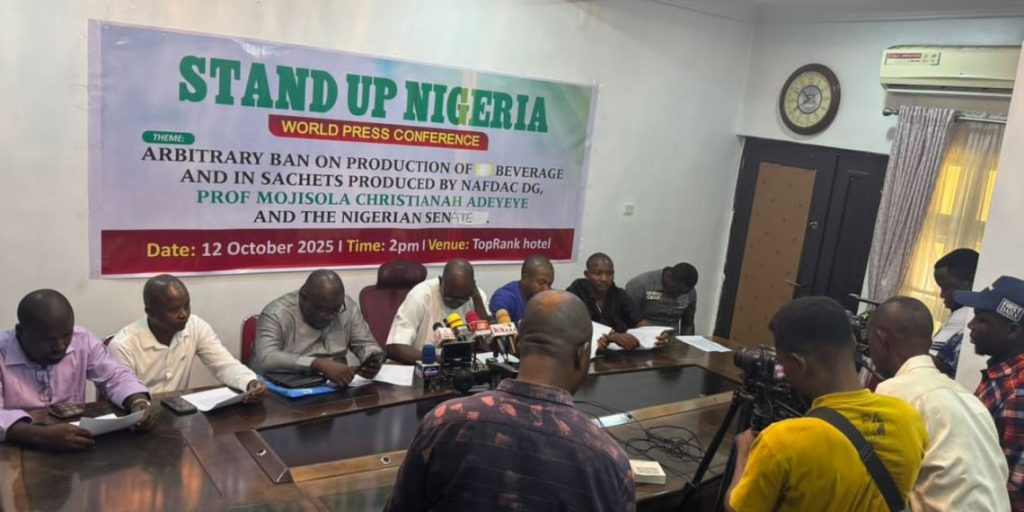Civil society group, Stand Up Nigeria, has sharply criticised the Director-General of the National Agency for Food and Drug Administration and Control (NAFDAC), Prof. Mojisola Adeyeye, and certain members of the Nigerian Senate over what it described as an “illegal” and hasty ban on the production, distribution, and consumption of alcoholic beverages in sachets and small-volume bottles.
Addressing journalists in a press conference, the group expressed deep concern over the abrupt nature of the directive, which reportedly mandates the ban to take effect by December 31, 2025.
According to the group, the ban was imposed without adequate consultation with key stakeholders and industry operators, undermining a more inclusive process previously facilitated by the Federal Ministry of Health.
Stand Up Nigeria accused the NAFDAC DG of bypassing constitutional and procedural requirements, warning that the action could have severe economic repercussions.
Read Also: NAFDAC partners WHO, others to advance nutrition, health in Nigeria
The group highlighted that the ban threatens over N1.9 trillion in investments and could result in mass retrenchments, directly affecting more than 500,000 workers and indirectly putting 5 million jobs at risk in logistics, marketing, and related sectors.
The group also questioned the validity of alleged Senate resolutions that allegedly prompted the ban, suggesting they may have been influenced by NAFDAC without due consideration of ongoing deliberations by the House of Representatives.
Stand Up Nigeria further argued that prior stakeholder consultations had already validated a National Alcohol Policy, which includes multi-sectoral enforcement, quality assurance, licensed retail outlets, and public awareness campaigns to curb underage alcohol consumption.
The group urged the Minister of Health to endorse the validated policy framework and called on the Senate to revisit the matter through proper stakeholder engagement.
It also demanded that Prof. Adeyeye desist from unilateral actions or step down, warning that her approach threatens the government’s broader economic and development agenda.



